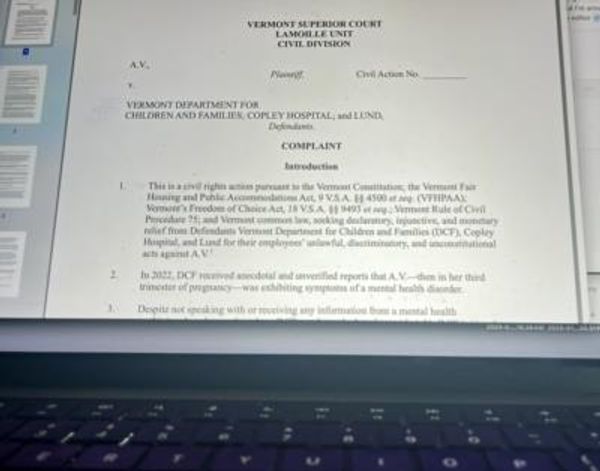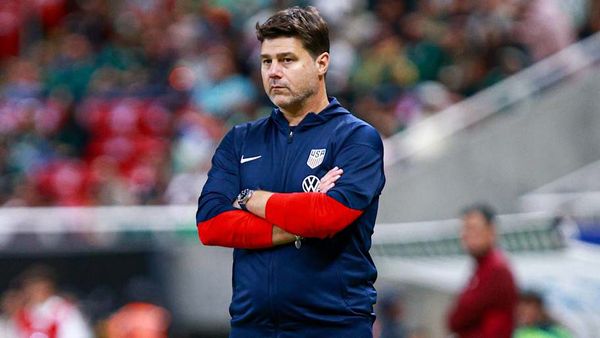"For many people, I'm not really a person. I'm an idea of a person."
Amanda Knox wastes no words. She reflects on her life with a faint but perceptible sense of anger; a reminder of what she went, and is still going, through.
In 2007, when she was 24, she was arrested and held in prison in Italy for four years on a murder charge.
She became a media sensation and has been subjected to countless versions of her story told by strangers, even after she was acquitted in 2011 and again in 2015.
Some versions purport to be true accounts. Others are openly fictionalised. Many, Knox says, impact her real life by perpetuating a false image of her.
"When people create an Amanda Knox character that is a lazy rehash of a fiction that was woven by my prosecutor and that captivated the world enough to wrongfully imprison an innocent person, I take issue with it," Knox tells ABC RN's Sunday Extra.
She says there's an "ongoing problem" with recreations of true, "ripped from the headlines" stories – and not just her own – where the central characters "tend to not be allowed to have authorship of their own narratives".
"That's something that I've been dealing with my entire adult life," she says.
Knox is on a mission to reclaim her life's narrative and oust the "most salacious and less true version of what happened to me in Italy" that "keeps being regurgitated".
But she also wants to "start a discussion about so-called 'inspired by real life' stories that you see being churned out in Hollywood again and again".
"The spotlight was turned on me against my desire, and I can't turn it off. I can't control that spotlight. What I can do is hold up a mirror to it."
'Inspired by' stories can come at a cost
Knox recently took to Twitter to express her dismay at the 2021 Hollywood film, Stillwater, which tells the story of an American university student on exchange in France where she's imprisoned for a murder she didn't commit.
The film's director Tom McCarthy has spoken about his interest in Amanda Knox, though he's denied the film is based on her story. He has said in creating the film he decided at a certain point to "leave the Amanda Knox case behind".
Knox sees it differently.
"This is not the first time that people have not just used what happened to me in Italy as the sort of jumping off point for a new fictional narrative, but have used my name to then promote and publicise that fictionalised narrative in such a way that there's an automatic reflection upon me," she says.
Knox argues that words like "inspired by" offer permission for storytellers to profit off a "salacious, scandalous version of a story that still is a pernicious false narrative that impacts me to this day".
It's a version that might cast doubt over whether Knox or the character inspired by her really was involved in the murder, or it might play into media depictions of Knox as "Foxy Knoxy" – someone who is sexually promiscuous and then somehow also of dubious moral standing.
"And by taking that stance of, 'Well, it's inspired by but it's not exactly [what happened]; it's fiction,' they are taking the stance that they don't have to be accountable to the truth."
The truth is that Knox has twice been exonerated of the murder of British student Meredith Kercher, who was Knox's housemate in Perugia, Italy, at the time of the killing.
But Knox says her innocence makes for a less interesting story to tell.
"Honestly, from the get-go in this case, I'm kind of a boring character. I didn't really do anything," she says.
"I just showed up at my house one day and called the police.
And then my world collapsed underneath me."
A new and 'brutal' reality
In 2015, a panel of Italian judges acknowledged "stunning flaws" in the investigation of Kercher's murder, adding that Knox was subjected to false accusation.
After being released from prison, Knox thought she might regain some anonymity. Instead, she returned to her home in Seattle to find it surrounded by paparazzi who followed her to school or to the shops. They even snuck into her wedding in 2020.
"I discovered the brutal reality that I didn't have the life I had before to go back to," Knox says.
"Instead I had this whole new reality, which was that my identity was attached and inevitably linked to this traumatic, horrible event that I actually had nothing to do with."
It's a reality that has persisted to this day.
"When people think about the murder of Meredith Kercher by Rudy Guede, they don't think of those people who are at the heart of this story," Knox says.
"They think of me."
Chamberlain, Lees and Lewinsky
In Australia, Lindy Chamberlain's wrongful conviction for the murder of her daughter in 1982 provides another example of a narrative co-opted by popular culture.
As film critic Luke Buckmaster writes, "The words 'the dingo took my baby!' made their way into popular culture, quoted and bastardised in American productions from Seinfeld to The Simpsons. But, as we know, they came from a nightmarishly real place."
John Bryson, author of Evil Angels, one of the most famous books, later adapted to film, to emerge from the case, makes a strong argument for both Lindy and Michael Chamberlain's innocence. But that couldn't stop the condemnation from the many Australians who'd become invested in the Chamberlains' case, fuelled in no small part by the extensive media coverage.
Joanne Lees, the British woman whose partner Peter Falconio was murdered on a remote stretch of highway in the Northern Territory in 2001, provides another example of a story overshadowing an individual.
A media storm surrounded the case while Ms Lees faced years of public speculation about her character.
In a 2006 interview with The Times in the UK, Lees described being "portrayed in the most luridly negative way in the press, and all but accused of murder".
Monica Lewinksy is another example of a hijacked narrative, Knox says.
Ms Lewinsky has in recent years spoken out about the trauma of the relentless public scrutiny she faced, and she has recently helped shape a new TV series exploring the Bill Clinton impeachment.
"For 20 years she was hiding. She was trying to live a private citizen's life and was denied that opportunity again and again," she says.
"Finally she had the courage and the opportunity to voice her experience, and that's a really important part of being a person: having agency in your own life," Knox says.
Knox would like those with "immense power in the storytelling industry" – Hollywood film-makers and the media included – to understand that their work can impact "real people who don't have the same privilege of storytelling".
"I think that you absolutely can tell a story that doesn't come at the expense of the humanity of another person," Knox says.
RN in your inbox
Get more stories that go beyond the news cycle with our weekly newsletter.







